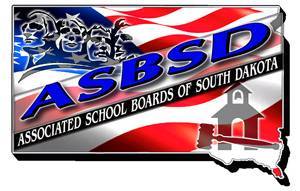Multiple bills related to public education and school boards were signed into law during the last week of the 91st legislative session.
Senate Bill 5, which which revises the process of school district boundary change, overwhelmingly found favor from the Senate (32-1) and House (65-2) before Gov. Dennis Daugaard signed it into law. ASBSD supported the bill.
SB 5 removed the provision in law allowing school district boundary changes to be petitioned and put the decision solely in the hands of school districts to initiate the land swap, so long as the area is contiguous. A public hearing requirement is required with the final decision still referable for vote and land owners may also petition in the event of the closure of an attendance center or school reorg.
Rep. Herman Otten said the bill helps districts avoid “volatile” land battles where they are forced to “spend a lot of money defending (their) boundaries.”
School boards gained flexibility in using dollars through the bidding process for equipment.
Senate Bill 118, which exempts the purchase of equipment under $50,000 from bidding requirements, passed the House and Senate unanimously on its way to getting the governor’s signature. ASBSD supported the bill.
Rep. James Schaefer said the bill provides political subdivisions the “latitude to be able to buy (equipment) on the Internet (and at) auctions” among other options.
An option for school board members and other political subdivision representatives displaced by a natural disaster to continue serving at their post passed the legislature, as well.
Unanimous votes by the House and Senate sent Senate Bill 74, which adjusts residency requirements for members of certain governing bodies who are displaced from their residence by a natural disaster, to Gov. Daugaard, who in turn signed the bill into law. ASBSD monitored the bill.
Rep. Kent Peterson said the bill would “simply allow people displaced the area (due to) a natural disaster” to continue to serve out their term on their local governing body regardless of the new residence’s location.
Two open meeting law changes for local governing bodies also reached the governor.
Senate Bill 73, which clarifies what constitutes an open meeting and includes electronic medium meetings under open meeting’s law, saw zero nay votes in the Senate and only a handful in House before being signed into law by Gov. Daugaard. ASBSD monitored the bill.
Rep. Al Novstrup said the bill “modernizes open meeting law.” During SB 73’s House committee hearing, SDNA Lobbyist Justin Smith acknowledged holding a meeting via email or group text would be difficult.
A second open meeting law signed by Gov. Daugaard is Senate Bill 90, which ensures that members of the public can record a public meeting via audio or video so long as it is not disruptive, unanimously passed the Senate and nearly did the same in the House.
ASBSD monitored the bill, which also requires the recording to be made apparent to members of the governing body.
Sen. Ried Holien said political subdivision representatives “will adapt” to the new provision.
A new conflict of interest provision was signed into law by the governor after undisputed support in the House and Senate.
House Bill 1214, which regulates conflicts of interest, saw zero nay votes in either chamber. ASBSD monitored the bill.
HB 1214 prohibits school board members and other district employees, as well as Other government subdivision and state level elected members, from receiving money from or through the state or from having an interest in a contract or receiving a direct benefit from the contract unless that contract or benefit is disclosed to and approved by the board.
A provision in the bill would allow an individual to disclose a potential conflict of interest to the board, who can then note the public disclosure by determining if the conflict is not contrary to the public interest, fair and reasonable. The disclosure and discussion would then be recorded in the board minutes.
Rep. Mark Mickelson said the bill would help individuals recognize what constitutes a conflict and provides a process for disclosing a potential conflict.
Violation of the bill’s provisions is a class one misdemeanor, benefits obtained from the conflict of interest are subject to forfeiture and a governing board can void a contract believed to be in conflict.
Votes in the House and Senate were in conflict over Senate Bill 63, which would have required school districts to implement, practice and review safety plans.
Senators passed the bill on a vote of 34-1, but Representatives defeated the bill on a 27-39 vote.
ASBSD supported the bill, which called for the organization of a school safety committee in each district, development of a plan, scheduled school safety drills and an annual meeting to review the plan.
During the bill’s committee hearing in the Senate SASD Executive Director Rob Monson noted that 99 percent of school districts that responded to a survey cited they have a safety plan in place.
For more updates on what was passed and defeated during legislative session, check out the ASBSD Blog and Bill Tracker page.
